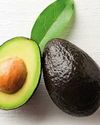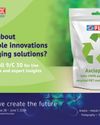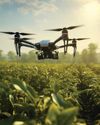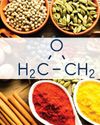
TYPES OF CONTAMINATION
The contamination of food and drink products can cause anything from minor quality issues to severe health outcomes and even death. There are four main types of contamination which can affect food and drink products: microbial, chemical, physical and allergenic.
Microbial contamination is caused by microorganisms such as bacteria, viruses, mould, fungi and toxins like campylobacter, salmonella and E. coli, and microbial contamination is the most common source of food poisoning. Control measures include strict hygiene measures, ensuring separation between raw and cooked ingredients, and the use of techniques to reduce the microbial load in the product, such as pasteurization or sterilization.
Chemical contamination often arises from the poor control of products used for cleaning and disinfection. If chemical residues remain on food preparation or contact surfaces, or if chemicals are used in the vicinity of food and drink products, then contamination can occur. Another source of chemical contamination may be the production of primary food ingredients such as the incorrect use of pesticides and medicines on farms.
As the name suggests, physical contamination is caused by foreign objects, and can include anything from stones and pest bodies through to items of plastic or metal. Within food processing facilities, poorly maintained or badly designed equipment can itself become a source of physical contamination in the form of items such as flaking paint or loose screws. Physical contaminants may also carry harmful bacteria, increasing the overall contamination risk.
Denne historien er fra December 2022-utgaven av Food Marketing & Technology - India.
Start din 7-dagers gratis prøveperiode på Magzter GOLD for å få tilgang til tusenvis av utvalgte premiumhistorier og 9000+ magasiner og aviser.
Allerede abonnent ? Logg på
Denne historien er fra December 2022-utgaven av Food Marketing & Technology - India.
Start din 7-dagers gratis prøveperiode på Magzter GOLD for å få tilgang til tusenvis av utvalgte premiumhistorier og 9000+ magasiner og aviser.
Allerede abonnent? Logg på

Avocados: Health Benefits And Sustainable Cultivation
ATTRACTIVE GROWTH SEGMENT - In only a few years, the avocado has developed from being a rather a and has become an integral part of modern cuisine and in restaurants throughout Europe and beyond.

UFlex to Showcase Innovative and Sustainable Printing and Packaging solutions at DRUPA 2024
U Flex Limited, India's largest multinational flexible packaging and solutions company, is participating in DRUPA 2024, the premier global trade fair for print and packaging innovations, scheduled to take place in Dusseldorf, Germany from March 28 to June 7, 2024.

Hubergroup and Manroland Goss unite for Sustainable Packaging Innovation
Hubergroup, a global specialist in and chemicals, has partnered with manroland Goss web systems, a leading provider of web offset printing solutions, in a strategic collaboration.

Technological Advancements in the Premium Flavour, Extract and Concentrate Industry
Food Marketing & Technology Magazine had the privilege of hosting the fourth edition of their business webinar on “Technological Advancements in the Premium Flavour, Extract and Concentrate Industry” with Paul Ahn, Global Sales Manager, Flavourtech.

Flavourtech's Origins: From Wine to Worldwide Flavor Solutions
LEON SKALIOTIS, CEO of Flavourtech - Discover how Flavourtech, founded over 40 years ago by an innovative winemaker in Australia, evolved from addressing grape juice desulphiting to revolutionizing flavor extraction and concentration across various industries.

How CPG Companies Can Adopt Better Sustainable Packaging Practices in 2024
Sustainability has gone mainstream. With more switching to consumers environmentally friendly brands, it's become a central theme across all industries.

The Evolution of the Protein Value Chain Sustainable Protein Systems for a Growing World
As the world's population is on course to surpass ten billion by 2050, our food systems face the challenge of providing sustainable nutrition without further harming harming the planet. Animal-based diets and the reliance on animal-derived proteins are significant contributors to environmental degradation and public health issues. Not only is the global population increasing, but the expanding middle class in developing nations is driving a surge in protein demand, intensifying the strain on our environment.

Implementing the Technological Intelligence in Agricultural Produce
It is estimated that by 2050 the I world's population will be around 10 billion. From employment generation to contribution to National Income, agriculture is important to all of us as agricultural produce is the core on which we survive. It contributes a significant portion to the economic prosperity of the developed nations and plays an active part in the economy of the developing countries as well.

Cocoa Crises: A Sweet Industry's Bitter Challenge
As a pastry chef and entrepreneur running a small-scale baking business, I have always believed in the magic of cocoa. From the velvety richness of couverture chocolate to the deep, earthy notes of cocoa powder to the creamy allure of cocoa butter, these ingredients are the essence of our creations.

Ethylene Oxide (ETO) Detection in Ready-Made Spice Mixes: Ensuring Food Safety
INTRODUCTION - In the world of culinary delights, ready-made spice mixes hold a cherished place, adding convenience and flavour to countless dishes. However, recent concerns over food safety have brought to light the presence of ethylene oxide (ETO) in some of these products.